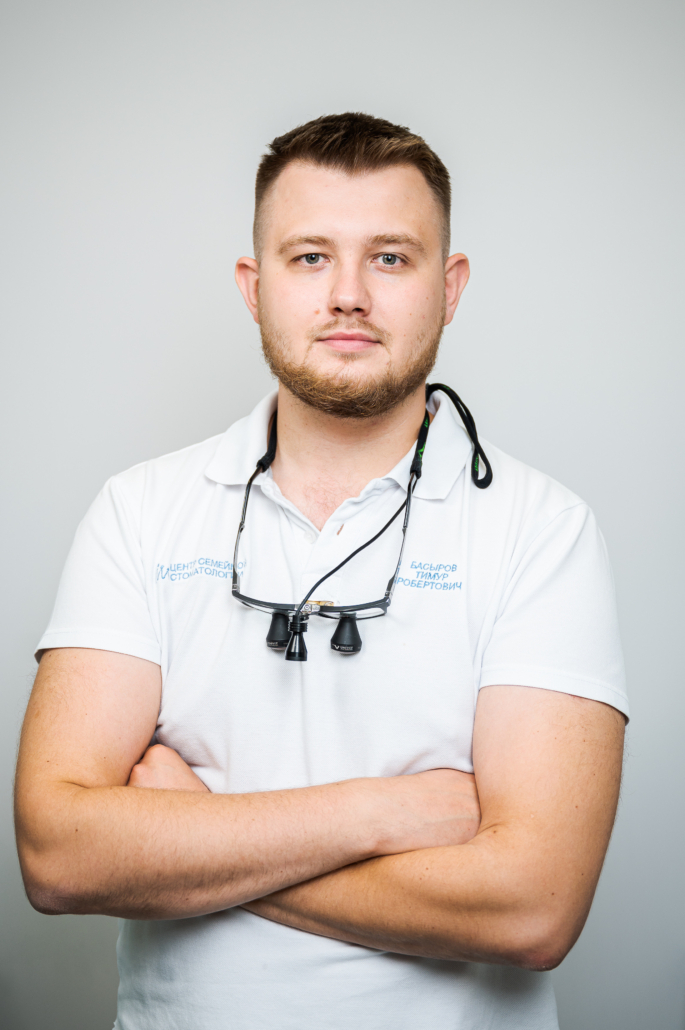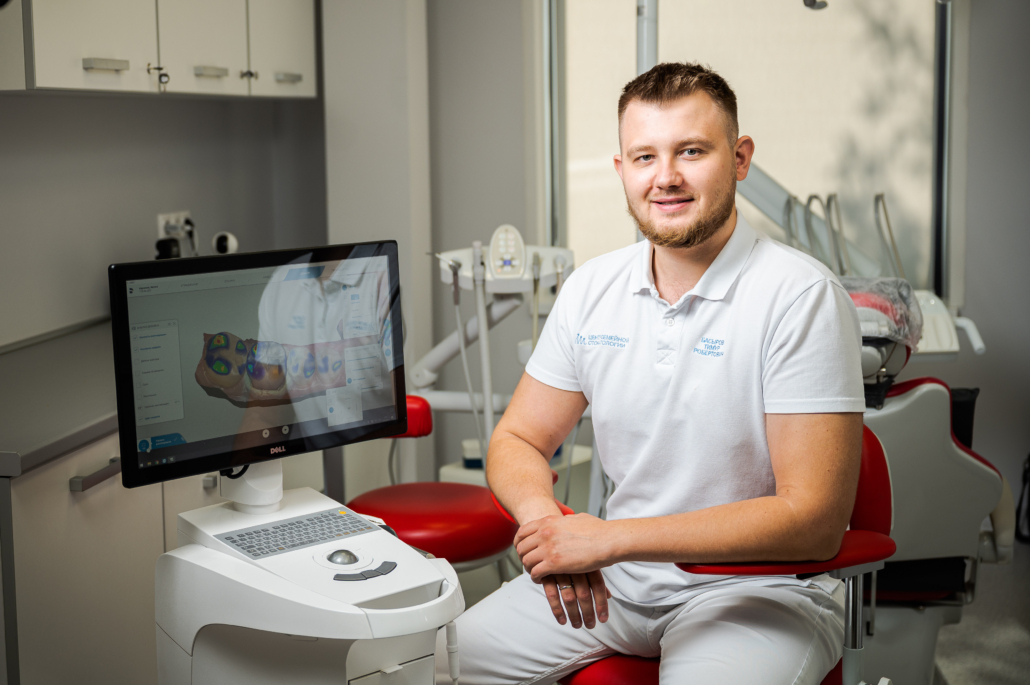Basyrov Timur: about artificial intelligence in dentistry
— Hello, Timur. Could you please talk about the use of artificial intelligence in modern dentistry?
— Currently, artificial intelligence is widely used in dentistry for both diagnosis and treatment, including dental prosthetics. Dentistry is constantly evolving, and it is important to monitor and adapt to the latest trends. With the help of modern technologies, we can use artificial intelligence to improve diagnostic accuracy, optimize treatment, prosthetics and prevent oral diseases. In our clinic, we actively use software based on artificial intelligence.
In the field of dentistry, an innovative solution called Diagnocat, which uses artificial intelligence, is used for diagnostics. The process is as follows: the CT scan is uploaded to Diagnocat, and in 5 minutes, artificial intelligence analyzes the X-ray, highlighting more than 65 conditions and various diseases. This tool identifies problems in each tooth in detail and suggests methods to correct them. In addition, it is able to detect potential problems that might be missed during a routine examination by a specialist, such as infections around the roots of teeth.
Basyrov Timur Robertovich is a dentist from the Ufa city (Republic of Bashkortostan), head of a dental laboratory. He graduated from the Bashkir State Medical University in 2017, and completed a residency in surgical dentistry in 2019. During his studies, he participated in the Sochi 2014 Olympics as a medical volunteer. Also during his studies, he took part in exchange trips for dental students to Montenegro. In medical practice, he is engaged in both dental treatment and restoration (installation of implants, prosthetics with crowns, veneers). He is an expert in the field of dentistry and is involved in the development of the dental industry in Russia.
— This is really interesting. Please tell us about restoring damaged teeth using artificial intelligence.
— I do dental prosthetics and am the leading orthopedist in our clinic, as well as the head of the dental laboratory, which allows me to participate in all medical and dental processes. In modern dental implantation, intraoral scanners are increasingly used, combined with software that avoids the need to take impressions. One of these complexes is called CEREC and combines various technologies, equipment and materials, which allows you to create restorations in one visit.
After preparing the tooth using the software, the software analyzes the tooth preparation, automatically creates a model of the restoration and, after checking by the doctor, sends the restoration for milling. The restoration coatings are then coated with paints, glazed and crystallized in an oven. After approximately 40 minutes, the restoration can be secured in the patient’s mouth. This method allows restorations to be made in one step, which is very convenient for patients.
Dental prosthetic procedures, including the use of veneers and crowns for smile modification, have become significantly easier thanks to modern programs and technologies such as DSD, EXOCAD and CEREC. These programs help doctors and dental equipment plan and create dental restorations. The process begins with the initial presentation and rationale of the smile, and then, after agreement with the patient, the model can be 3D printed and tested in the mouth. If the patient is satisfied with the prototype, it is necessary to move on to preparing the teeth, scanning and manufacturing restorations. Restorative milling is carried out on special milling machines, which, using AI, determine the milling gradient and cut out the restoration at a high height. After this, future teeth are individualized with paints and ceramic masses and fixed to the patient.
— Thanks for the information, Timur. What do you think is the future of artificial intelligence in dentistry?
— I think that in the future I will take on an even greater part of the planning, diagnosis and preparation of prostheses, crowns, onlays, veneers. But just as the doctor is responsible for the treatment of patients, all stages must be controlled and agreed upon with the doctor. Therefore, I believe that the use of AI is very useful for dentists, as work is accelerated and work is standardized. However, it should be noted that decisions related to treatment and prosthetics must be made by the physician based on his experience and clinical examination of the patient. Artificial intelligence should be used as a tool and assistant, and not as a substitute for professional, qualified expertise.




 © https://dea-singer.ru/
© https://dea-singer.ru/